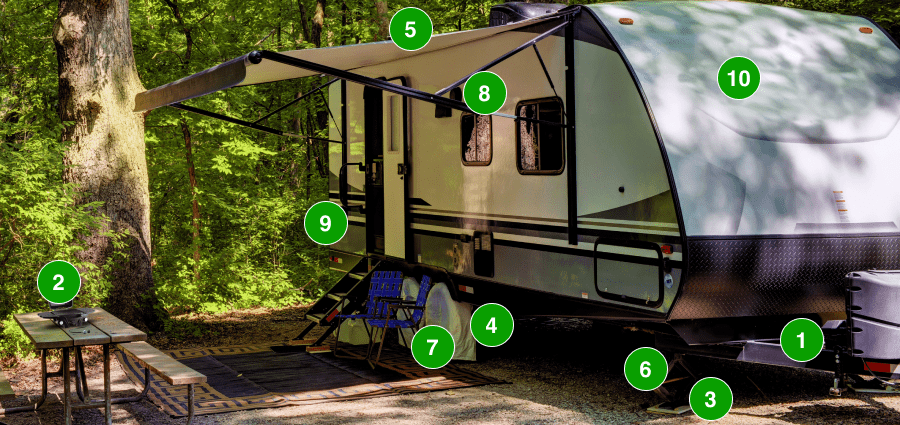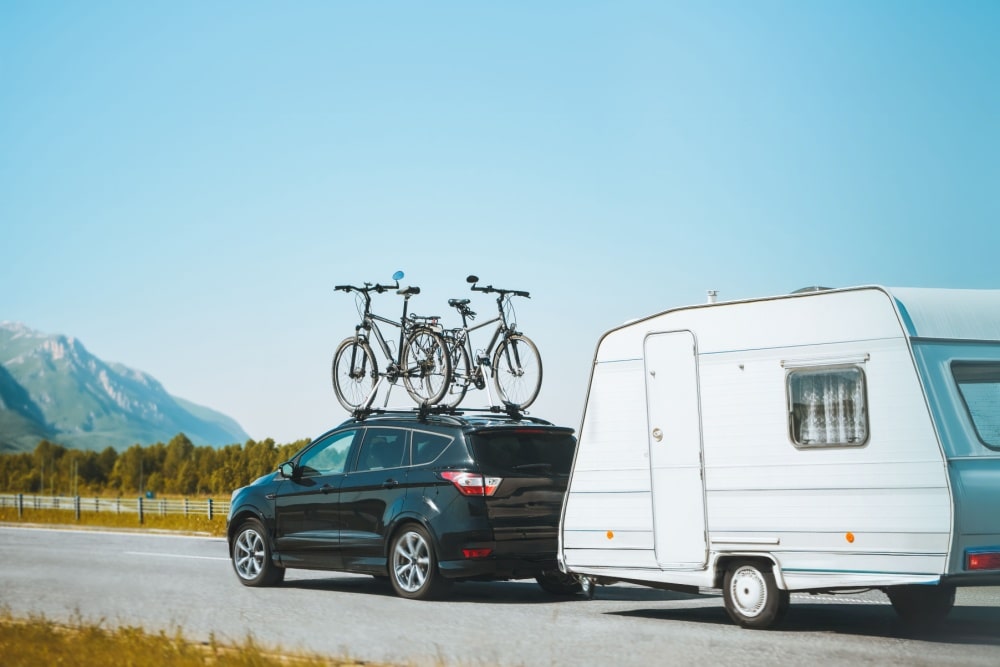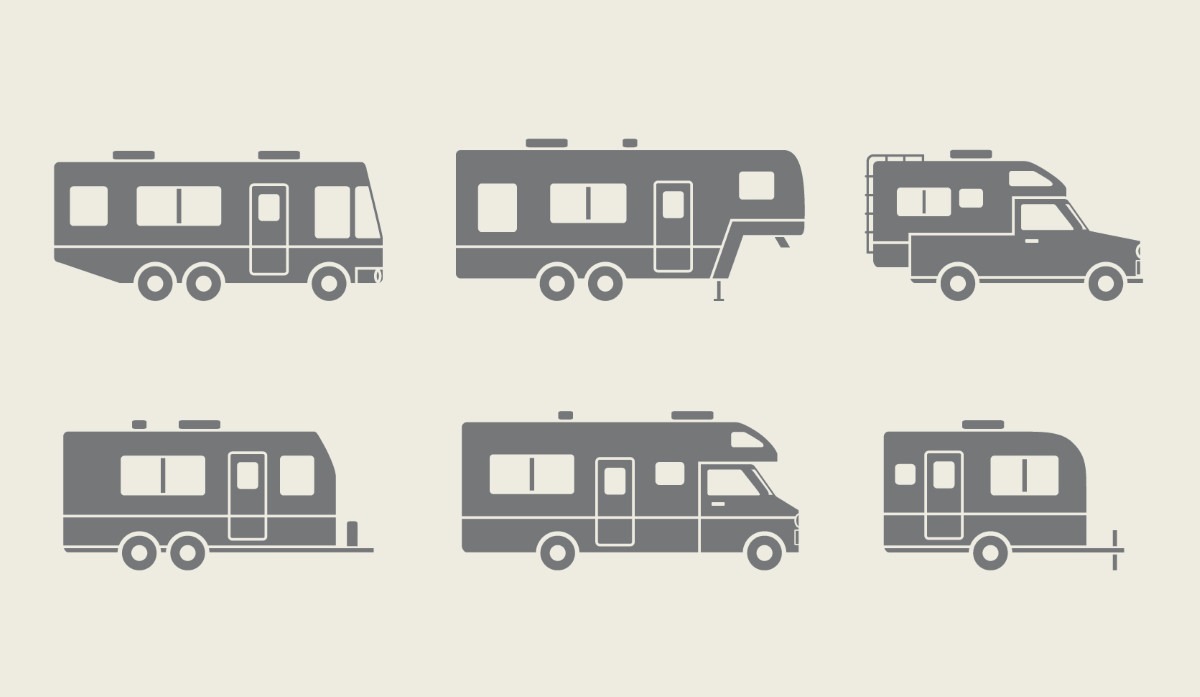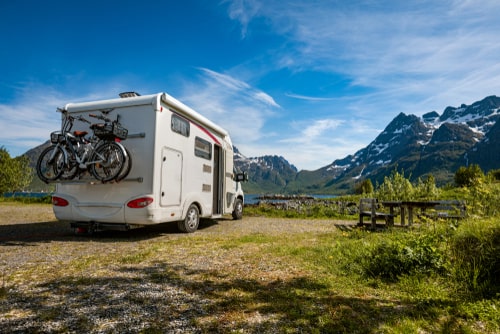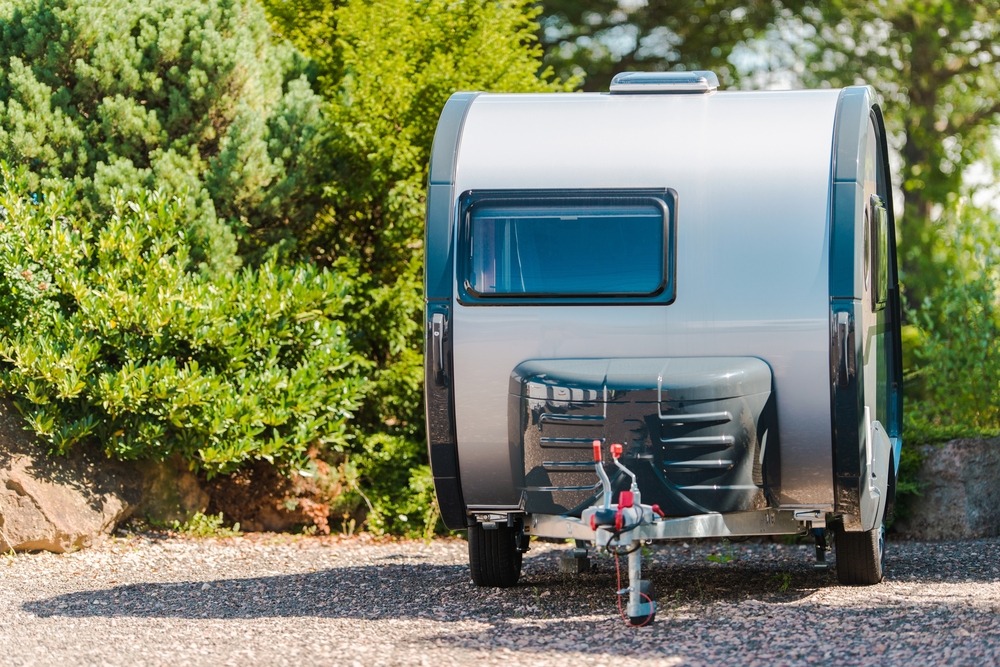
What’s the difference between a camper RV and a trailer?
This is one of the more frequently asked questions we hear here at Travel-Mor Trailer Sales, the leading & friendliest source for RVs & trailers in Ottawa, Eastern Ontario and the Outaouais.
If you’re considering purchasing a recreational vehicle, one good place to start is by defining the different products on the market today.
So let’s do just that – focusing on camper vs. trailers – in this edition of the Travel-Mor Ottawa RV & Trailer Blog.
Campers, Trailers and Traditional Motor Homes
When we’re talking about campers versus trailers, we are of course discussing the larger category of recreational vehicles.
That means there’s one RV/trailer category we should mention right off the bat.
Motor Homes – Bigger Bang (& Bigger Budget) vs. Camper or Trailer
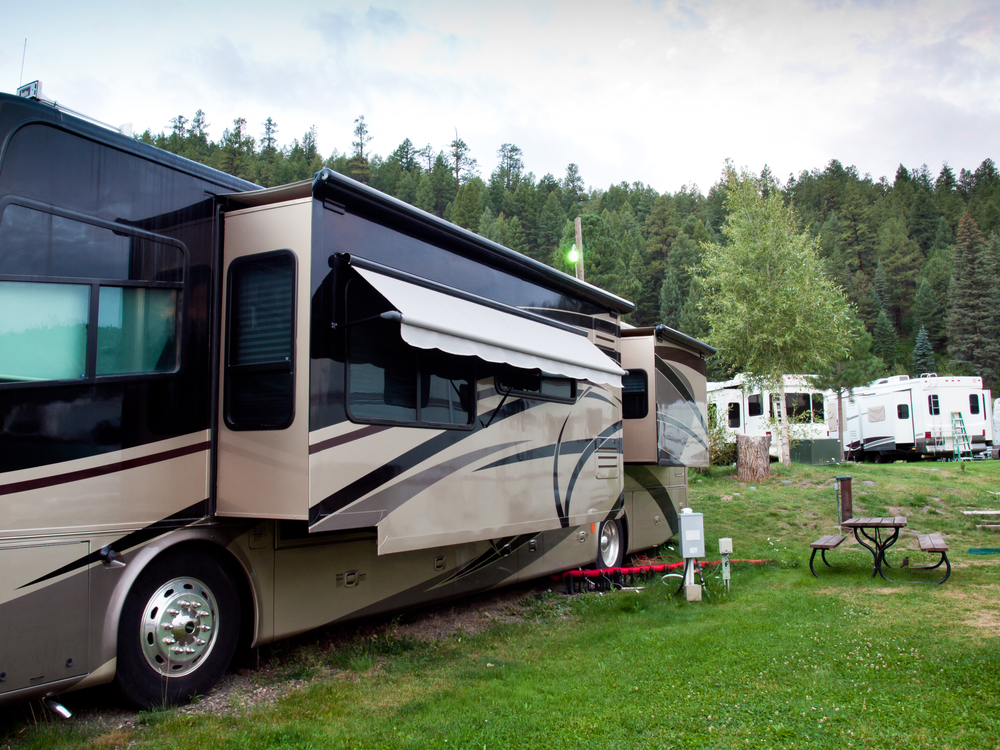
The first RV that comes to mind for a lot of folks is, in fact, a motor home.
That’s the classic “Winnebago” for a lot of people – although there are many other RV brands out there.
Motor homes are self-contained vehicles. It’s all one big unit.
In a motor home, you have the cockpit up front, immediately connected in the same cabin to the living room, dining room, kitchen, and then to the sleeping quarters aft.
Motor home RV’s are great. They can take you to lots of places, and in many ways it’s like riding down the road in a small home, with many if not most of the comforts right there.
If you’re a couple or a family, for example, one of you can do the driving while the others stretch out and relax in the RV interior.
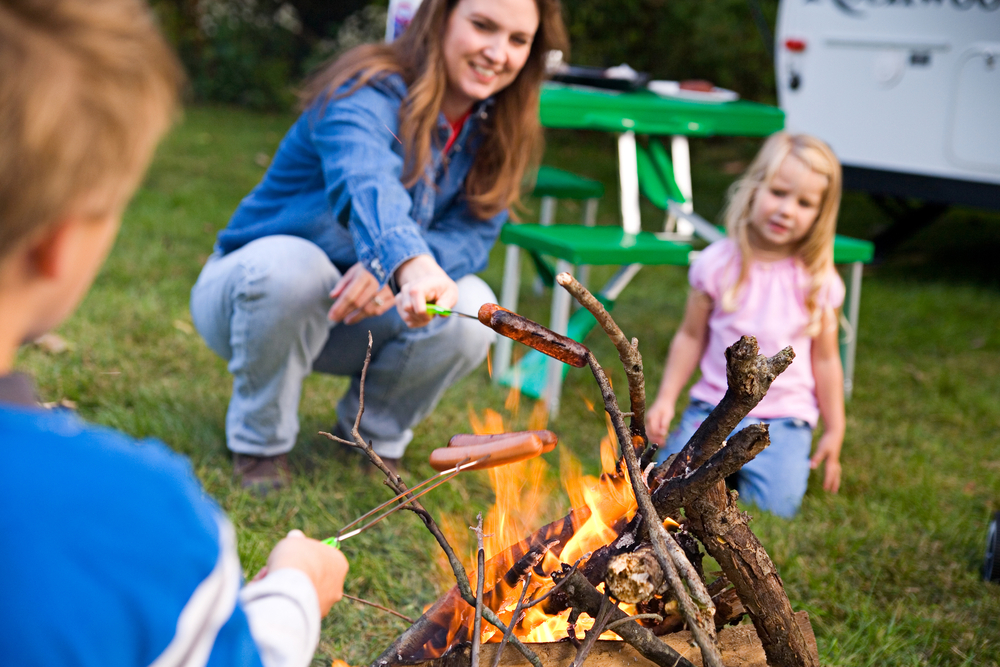
There are a couple of downsides to motor home RVs, both relating to cost. The first is the price of the RV: It will cost you more up front to buy a motor home. The other is gas: You’ll usually spend more on gas for the RV / motor home than for a trailer or camper RV.
If you’ve got the budget for a traditional RV / motor home – awesome! We’ve got RV’s in stock and can source practically any motor home you may have in mind.
But what if you’re looking for something a little smaller, a bit more manageable, and something friendlier on the bank?
Then we’re talking about campers and trailers.
Campers & Trailers: A World of Towing Your RV
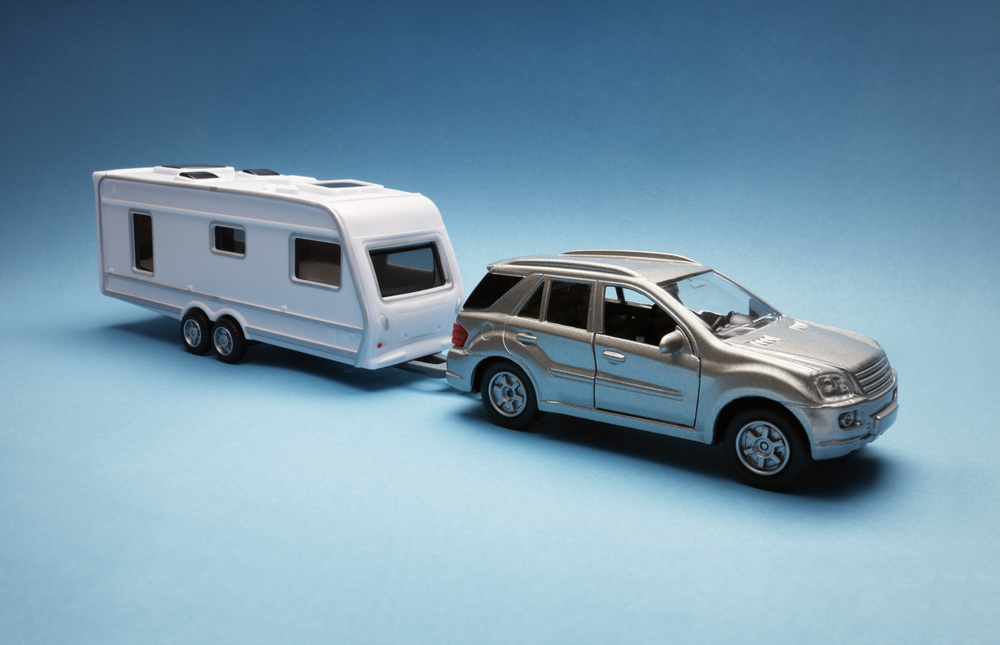
Campers and trailers are a broad category, and represent a whole world of road travel that is fun, safe, accessible and affordable.
Let’s examine some of the similarities among campers and trailers, as well as some key differentiating factors.
Camper RV vs. Trailer: Similarities
The biggest similarity between a camper and a trailer is that you haul or tow these behind your own vehicle.
That means that, in most cases, all passengers who are along for the journey must ride inside your car or truck while in motion on the road. (the exception is made in some locales for some campers that sit on the bed of a pickup truck)
So right off the bat, you’re talking about limiting the number of passengers. It’s great for a couple, or for parents travelling with 1, 2 or maybe 3 children – although in the case of campers, some can be towed by minivans, giving you more passenger options.
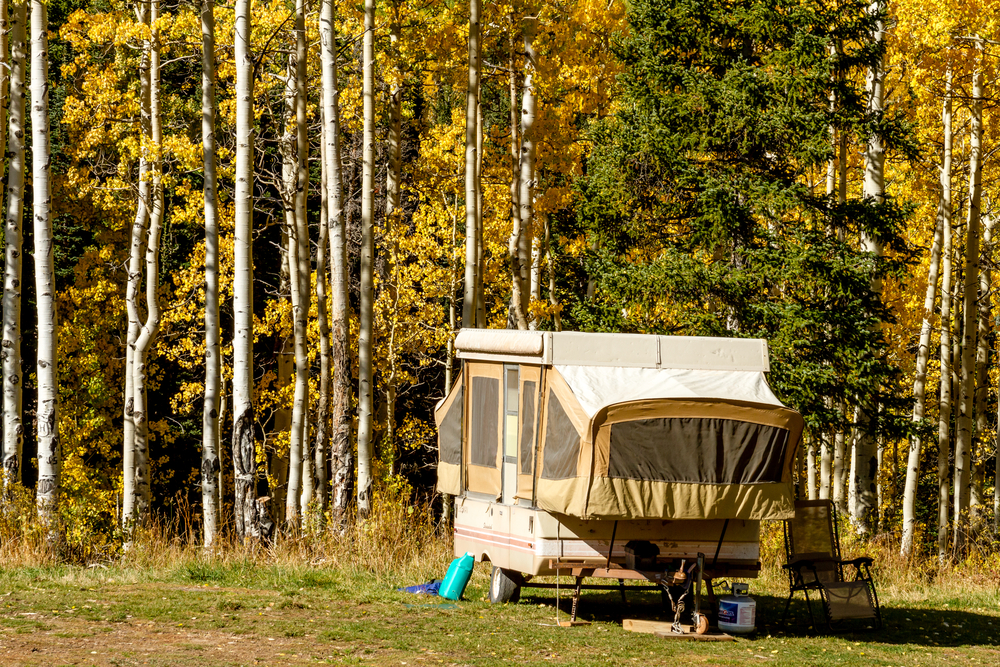
Campers and Trailers are thus both separate vehicles, without an engine that propels its motion.
Campers & Trailers need a hitch and a towing package on your vehicle.
Campers and Trailers both have sleeping accommodations, meaning you don’t need a tent for the night, and they protect you nicely from the elements.
Campers and trailers also give you added storage and luggage capacity, as opposed to the trunk or cargo area of your own vehicle.
Camper RV vs. Trailer: Differences
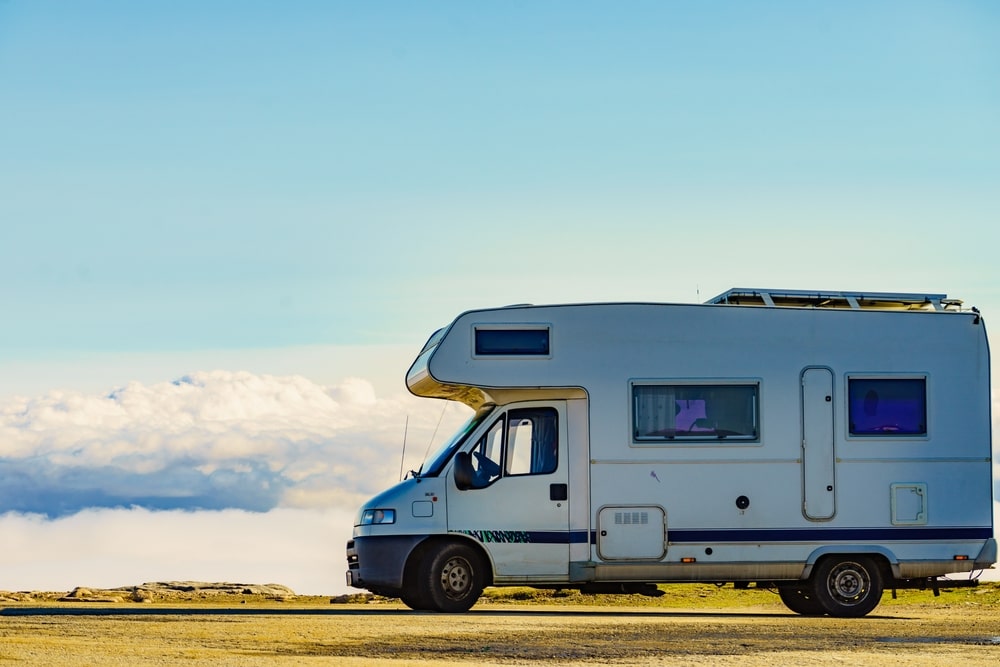
With the similarities in mind, let’s explore some of the many distinctions between campers and trailers.
Campers (aka “pull campers”) tend to be smaller than trailers.
Campers also generally are less expensive than trailers.
Some campers are tiny, with a pop-up top and sleeping accommodation but not much more than that.
Other campers are bigger, have a permanent roof, and might even have additional storage and/or other facilities.
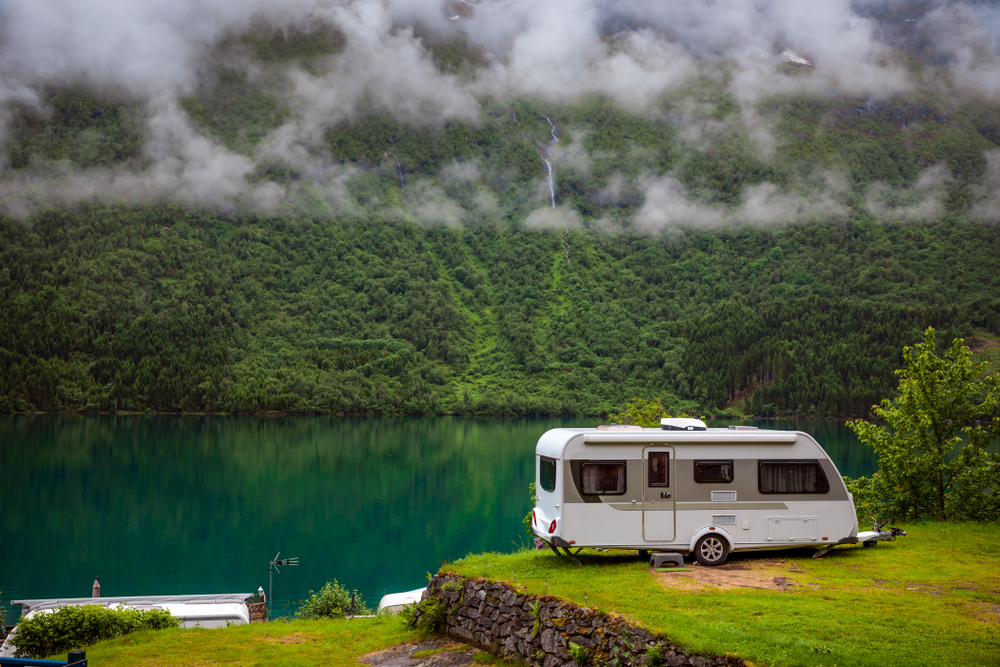
Being smaller comes with pros and cons for the camper:
- Cheaper
- Lighter weight
- Harder to manoeuvre (especially parking)
- Less cargo space
- Less facilities
Some campers are bigger than others, and a few even have basic cooking facilities.
There are also campers that fit right onto the bed of a pickup truck. This means they are easier to handle on the road, and take up less space when parking.
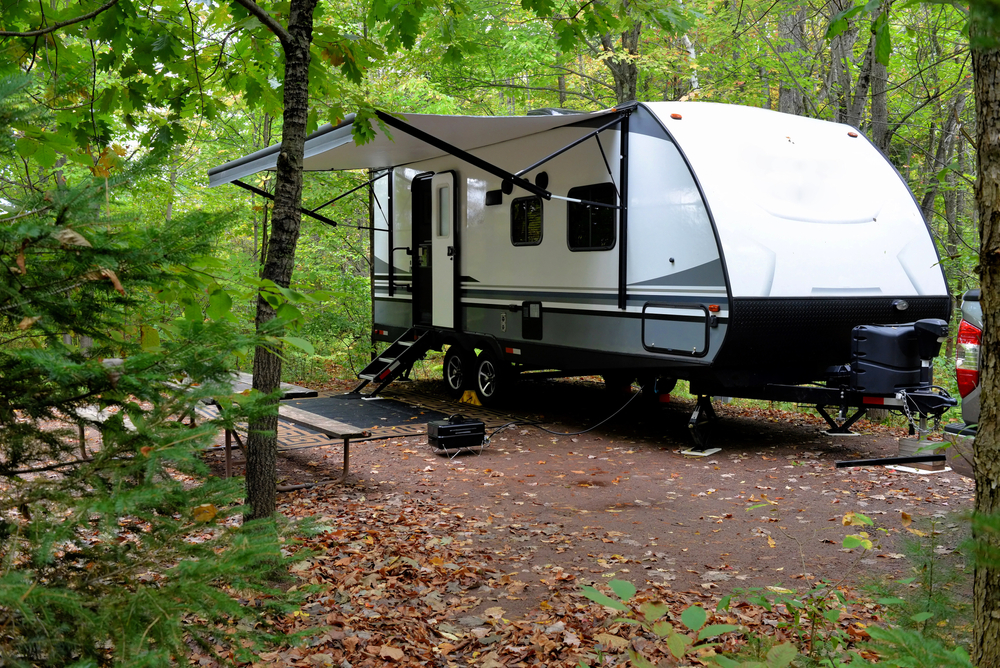
Trailers, meanwhile, are generally a larger breed.
Some trailers are just a bit bigger than the largest camper. Other trailers are practically the size of a motor home. So you can tell that we’re talking about a pretty broad category here.
Trailers have pros and cons including:
- Easier to maneuver
- More cargo space
- More facilities (kitchen, washroom, etc.)
- Bigger price tag
- Lower fuel economy
The best way to see which is right for you – camper or trailer – is … to see for yourself!
Which is Right for You: Camper or Trailer?
If you have a bigger budget and want more of the luxuries that a motor home RV would otherwise offer but don’t want to break the bank, trailers are a great option.
If your budget is a bit smaller – and/or smaller is the way you’d prefer to travel – then a camper could be an excellent option.
To find out more about campers and trailers in Ottawa, why not pay a visit to Travel-Mor Trailer Sales?
We’re a friendly RV & trailer (and camper!) dealer located just minutes from central Ottawa. We’d be glad to answer any and all of your questions about campers vs. trailers, and it would be our pleasure to show you hands-on what campers and trailers are all about!
Contact us today to get started on your camper or trailer journey.

